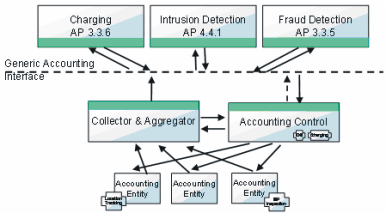Subproject SYMPATHIE: | SYMPATHIE is managed and financed by |
Institution | Computer Networks and Internet, University of Tübingen | |
Team leaders: | Prof. Dr. Georg Carle | |
Staff members: | Dr. Christian Hoene | |
Student employees: | Andreas Korsten | |
SYMPATHIE |
| |
ScaleNet | ||
Bundesministerium für Bildung und Forschung (BMBF), Bonn. | Project Management Agency in the DLR/Information Technology | |
Partners: | ||
Technical University of Berlin, DAI-Laboratory of Prof. Sahin Albayrak. | ||
Project duration: | 01.09.2005 –30.08.2008 | |
Description: | ScaleNet aspires to develop a comprehensive, cost-effective, flexible and efficient system concept, which aims at an IP optimized integration of heterogeneous wireless and wire line networks and their access technologies in order to provide attractive multimedia broadband services. Sustainable user benefit is achieved by an easy and unified usage of services ("click and wow" effect) with unlimited mobility and eventually by lower costs. | |
Accounting and charging: | The future B3G network shall be developed right from the start to support charging of services, including IP packet transportation and application services. To achieve these goals, we propose a generic accounting infrastructure (Figure 1) to collect data from the bearers, core network, and service providers. The accounting data will be processed by a generic AAA and charging solution, which is flexible to support many different charging schemes.
| |




